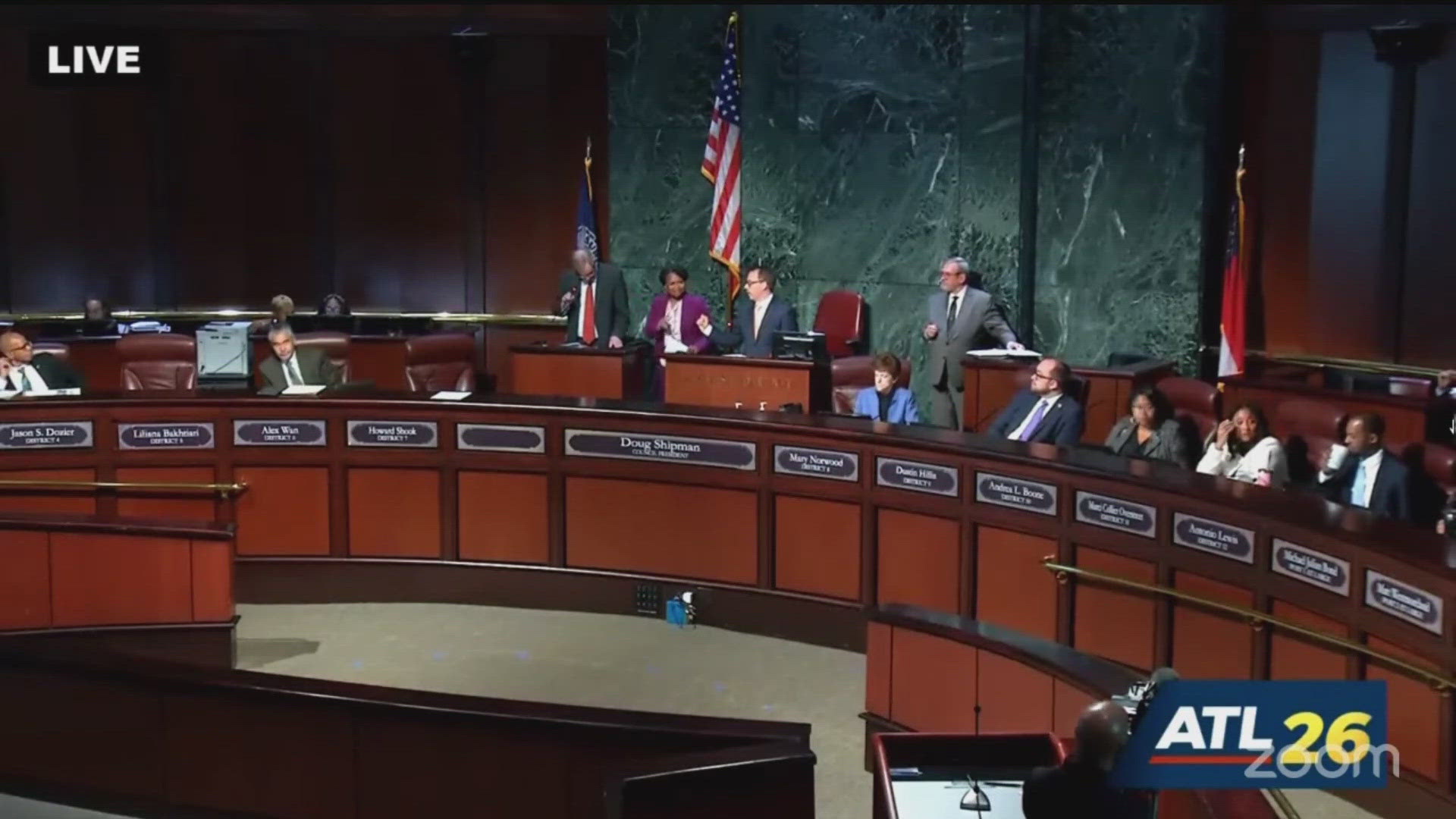ATLANTA — On a rainy day in Downtown Atlanta, Toni Jackson is looking forward to brighter days. New funding means new purpose for the nonprofit where she works. On Monday, the Atlanta City Council approved a two-year, $5 million contract extension to keep the city's policing alternatives and diversion program, called PAD, going.
"It means hope. It means justice," Jackson said. "It means everything we stand for, honestly. For us, this is about shifting mindsets and biases. It’s about changing the culture. For us, it’s about restoring Atlanta and the trust we desperately need in our city. It’s about building community.”
The council heard from PAD participants like Michael Taylor during its meeting on Monday. Taylor said he was diagnosed with PTSD earlier this year, but he said he avoided jail time in the year he's used PAD services.
"The odds are against me," Taylor said. "I'm on felony and misdemeanor probation. The chances of me going back to jail are very high. But I do plan on beating the odds. I believe PAD has been the difference in me not going back to jail. Taking away PAD from us is like throwing us back into the lion's den."
PAD aims to help people struggling with addiction, mental health issues and homelessness avoid arrest and get back on their feet. In Monday's meeting, Atlanta's chief operating officer, LaChandra Burks, pushed back on PAD's effectiveness. She and some councilmembers said they wanted to see more results.
"What we have seen is a huge increase in funding, but the numbers beginning to trickle down," Burks told councilmembers. That’s a cause for concern for us, which is why we want to do a little more research into making sure we put some very strong metrics in place.”
A new diversion center opened in Atlanta last month with the goal of diverting people from prison. Councilman Michael Julian Bond, who represents Post 1 at large, said the two could work in harmony. However, he said he would like to see the PAD program modified so it can be more useful.
"It’s been a lift and innovation to the way we serve the unhoused and those persons that are challenged in the middle of an emotional or substantial crisis," Bond said. "Having this augmented part of our public safety or human services response has been a dramatic game-changer. But I think it’s time to look and see, not to end PAD by any means, but to see how the program itself can be expanded, where its effectiveness is being grown.”
So far this year, PAD has responded to more than 1,600 cases, with an average response time of 22 minutes. Jackson said PAD's work goes beyond the numbers, and staff has continued working to try to meet the mission without assurances of funding for months. She said despite the rain, there are brighter days ahead.
"It's been a trying time for us for sure to show up and do this work with the same heart, compassion, dedication even with the uncertainty of maybe not continuing the program. But we showed up every day."
Jackson said some PAD staff were at risk of losing their jobs without the additional funding from the Council. PAD also relies on federal funding and private donations. In total, the city said it has set aside $22 million for pre-arrest diversion services in the last few years.

